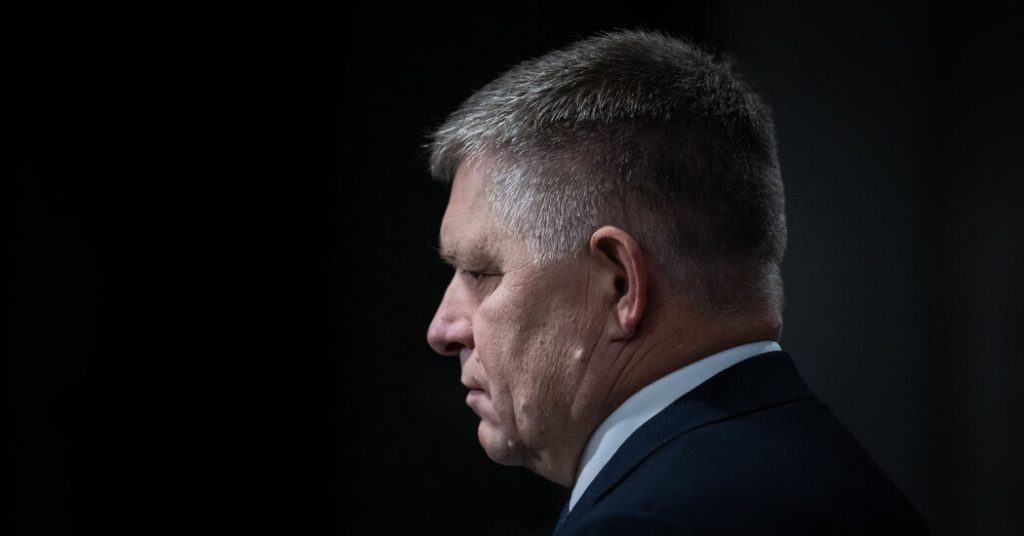Robert Fico has been a prominent figure in Slovakian politics since the country gained independence in 1993. He founded the Smer party in the late 1990s and served as prime minister for three terms starting in 2006. Despite starting out on the political left, Smer has shifted towards right-wing views on immigration and cultural issues. Fico’s leadership has been marked by close ties to Russian President Vladimir Putin and Hungarian Prime Minister Viktor Orban, and his resignation in July 2018 followed mass protests over government corruption in the wake of the murder of journalist Jan Kuciak and his fiancée.
After his resignation, Fico returned to power in an election last fall, forming a coalition government after campaigning against sanctions imposed on Russia following its invasion of Ukraine. Fico’s anti-Ukrainian stance raised concerns among E.U. leaders in Brussels, who feared Slovakia could form a pro-Russian alliance with Hungary and potentially Italy, impeding support for Ukraine. The election of Peter Pellegrini as Slovakia’s president further strengthened the position of political forces friendly to Russia in Central Europe, as Pellegrini opposed providing military and financial aid to Ukraine.
Slovakia has a strong tradition of press freedom, but protesters calling for government reforms after Kuciak’s murder sought deeper changes than just press freedom. Fico’s government faced mounting criticism and calls for new elections in the wake of the protests, which were the largest seen in Slovakia since the Velvet Revolution that led to independence. The demonstrations highlighted growing discontent with the government and its handling of corruption issues.
Fico’s Smer party, despite starting on the left, has shifted towards right-wing views on various issues, including immigration and culture. The party has consistently governed as part of a coalition and has been a central force in Slovakian politics for many years. Fico’s leadership has been characterized by his ties to Putin and Orban, as well as his controversial stance on Ukraine and alignment with pro-Russian sentiments in Slovakia.
The resurgence of Fico and his party in the fall election signaled a potential shift in Slovakian politics towards closer ties with Russia, which raised concerns among E.U. leaders about the country’s position within the European Union. Fico’s election victory and his coalition government’s anti-Ukrainian positions were seen as a troubling sign of the erosion of support for Ukraine within Europe. The political landscape in Slovakia and Central Europe has been shaped by shifting alliances and a growing influence of pro-Russian forces in the region.
The election of Pellegrini as Slovakia’s president further solidified the position of political forces aligned with Russia in Central Europe, as his opposition to providing aid to Ukraine mirrored Fico’s stance. The victory of Pellegrini in the largely ceremonial role of president underscored the growing influence of pro-Russian politics in the region and raised concerns about Slovakia’s position within the European Union. The country’s political landscape continues to evolve, with implications for its relations with both Russia and Western Europe.


